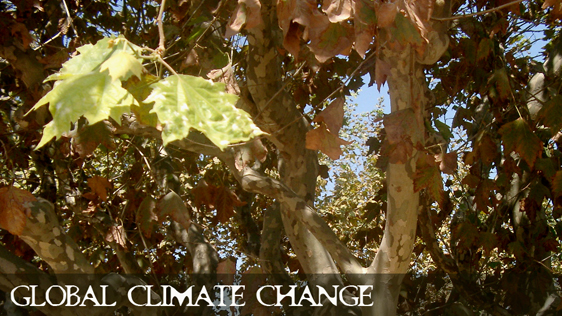
Sentido.tv :: Climate change is no longer controversial; it has been accepted as scientific fact by a global consensus of researchers and policy makers, including the Bush White House, which resisted acknowledging human activities were a vital contributing factor, until recently. Now the Nobel committee selecting the Peace Prize laureate has raised the issue of warming posing a major international security crisis.
At a September conference he hosted on 'Energy Security and Climate Change', Pres. Bush acknowledged the validity of the IPCC's research, stating "A report issued earlier this year by the U.N. Intergovernmental Panel on Climate Change concluded both that global temperatures are rising and that this is caused largely by human activities. When we burn fossil fuels we release greenhouse gases into the atmosphere, and the concentration of greenhouse gases has increased substantially."
And now, the political class in the US liberal-conservative hot-bed must grapple with the fact that climate change will be, when its most serious repercussions are felt, an international security issue, pushing millions of refugees across borders in search of basic sustenance, like water and food. And policy-makers in the US must come to terms with their very real role in shaping the global capacity to confront these adverse consequences.
The Sudan is cited as a first-case. It's long civil war, in which the Khartoum-based regime fought against rebellions in the east, south and west of the country, had a lot to do with food and water scarcity, and the need to control natural resources like oil in order to have the wealth to import sufficient amounts of those vital commodities or to build needed irrigation. Khartoum would not allow local control in any part of the country. Further desertification, the "advance of the Sahara", threatens to return Sudan to multi-party civil war.
More global cases involve countries like China, India and Pakistan, three nuclear powers, which could find themselves engaged in a brutal life and death struggle to provide water to their immense populations, as snow-melt from the Himalayan Plateau becomes scarce. The world cannot afford to allow such a war, or its causes, to burst forth.
The IPCC, which shares the award with Mr. Gore, the world's most visible climate campaigner, has issued several reports this year alone putting top-line consensus climate science into the public domain and forcing governments to keep dealing with the issue publicly and diplomatically. [Complete Text]












No comments:
Post a Comment